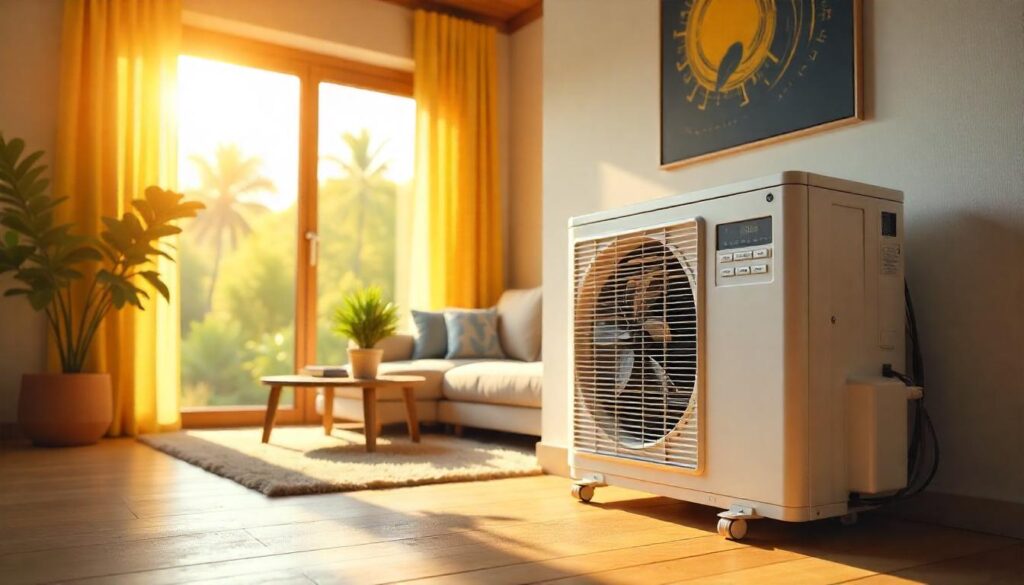Energy Efficiency of Air Conditioners: A Complete Guide to Saving Power and Money
Energy Efficiency of Air Conditioners
In today’s world of rising electricity costs and increasing awareness of environmental impact, energy efficiency is more important than ever—especially when it comes to air conditioners. As one of the most power-hungry appliances in a household or office, choosing an energy-efficient air conditioner can significantly reduce your utility bills and carbon footprint.
Whether you’re upgrading your current system or buying one for the first time, understanding the energy efficiency of air conditioners is key to making a smart, cost-effective decision. In this article, we’ll break down how air conditioner efficiency works, what to look for, and how you can maximize performance while minimizing energy use.
What Does Energy Efficiency Mean in Air Conditioners?
Energy efficiency in air conditioners refers to how effectively the unit converts electricity into cooling power. A more efficient unit can cool your home using less energy, resulting in lower electric bills and less environmental impact.
Key Terms to Know
Before diving deeper, here are some essential terms related to AC energy efficiency:
✅ EER (Energy Efficiency Ratio)
This is the ratio of cooling capacity (BTU) to the power input (watts) at a specific temperature. Higher EER means better efficiency.
✅ SEER (Seasonal Energy Efficiency Ratio)
SEER is similar to EER but measured over an entire cooling season, accounting for temperature variations. Higher SEER ratings indicate more efficient systems.
✅ ISEER (Indian Seasonal Energy Efficiency Ratio)
Used in countries like India, ISEER is a climate-based version of SEER designed to reflect actual usage more accurately.
✅ Star Rating
Many countries use a star rating system (like the ENERGY STAR label in the U.S. or BEE stars in India) to indicate how energy-efficient a model is. More stars mean more savings.
Why Energy Efficiency Matters
🔌 Lower Electricity Bills
Efficient air conditioners consume less energy, translating into significant monthly savings—especially in hot climates where usage is frequent.
🌍 Environmentally Friendly
Less energy use means fewer fossil fuels burned at power plants, which helps reduce greenhouse gas emissions.
🧊 Better Cooling Performance
Efficient ACs often use advanced inverter technology, which maintains a consistent temperature and avoids frequent on/off cycles.
📈 Long-Term Value
While high-efficiency units may cost more upfront, they pay for themselves over time with lower energy bills and less maintenance.
Types of Energy-Efficient Air Conditioners
1. Inverter ACs
-
How they work: Adjust compressor speed based on room temperature.
-
Efficiency: High — they consume up to 30-50% less electricity than non-inverter models.
-
Ideal for: Homes, offices, and areas with long summer seasons.
2. Split Air Conditioners
-
More energy-efficient than window units due to separate indoor and outdoor units.
-
Usually come with inverter compressors and better cooling distribution.
3. Central AC Systems with Smart Thermostats
-
Best suited for large homes or commercial buildings.
-
Smart thermostats and zoning systems optimize energy use based on room occupancy and temperature.
4. Portable and Window Units with High EER
-
Great for small rooms or renters.
-
Look for models with ENERGY STAR or at least 3-star efficiency ratings.
Factors That Affect Air Conditioner Efficiency
1. Size and Capacity
Bigger is not always better. An oversized unit cools too quickly without properly dehumidifying, while an undersized one runs constantly and uses more energy. Always choose the right BTU rating for your room size.
2. Room Insulation
Poor insulation leads to more heat entering the room, making the AC work harder. Proper sealing, shaded windows, and insulated walls improve performance.
3. Usage Patterns
Leaving the AC on all day versus using timers or smart controls significantly affects energy consumption.
4. Installation Quality
Incorrect installation—such as poor placement, unsealed ducts, or exposed pipes—can reduce efficiency by up to 30%.
5. Maintenance
Dirty filters, clogged coils, and low refrigerant levels all reduce energy efficiency. Regular servicing keeps your AC in top shape.
How to Choose an Energy-Efficient Air Conditioner
✔️ Look for the Star Rating
In most countries, air conditioners come with energy efficiency star ratings (like ENERGY STAR in the U.S. or BEE ratings in India). Go for 4-star or 5-star models if your budget allows.
✔️ Check the SEER or ISEER Value
The higher the value, the better. As a general rule:
-
SEER 13-15 = Standard Efficiency
-
SEER 16-20 = High Efficiency
-
SEER 21+ = Premium Efficiency
✔️ Opt for Inverter Technology
Though costlier initially, inverter ACs deliver better long-term value through savings and improved comfort.
✔️ Choose the Right Capacity
Here’s a rough estimate:
-
Up to 150 sq. ft = 1 Ton
-
150–250 sq. ft = 1.5 Ton
-
250–400 sq. ft = 2 Ton
✔️ Research Brand Reliability
Top brands like Daikin, LG, Hitachi, Carrier, and Mitsubishi Electric often offer energy-efficient models with solid warranties and service networks.
Tips to Maximize Energy Efficiency
-
Set Thermostat at 24–26°C (75–78°F)
This range is comfortable and uses less energy. -
Use Ceiling Fans
They help circulate the cool air and reduce the workload on the AC. -
Block Direct Sunlight
Use curtains or reflective window films to keep heat out. -
Clean Filters Monthly
A clogged air filter can increase energy use by up to 15%. -
Service Annually
A professional tune-up ensures your AC is running at optimal efficiency. -
Use Timers and Smart Controls
Avoid running the AC when it’s not needed by programming your schedule.
Frequently Asked Questions (FAQs)
Q: Does a higher star-rated AC really save money?
A: Yes. A 5-star AC can use up to 25–40% less electricity than a 2-star model over time.
Q: Is inverter AC better than non-inverter?
A: Inverter ACs are significantly more energy-efficient, quieter, and provide consistent cooling.
Q: Can I use a solar-powered AC?
A: Yes, but installation costs can be high. However, the long-term savings and sustainability are worth it for many.
Final Thoughts
Energy-efficient air conditioners are not just a trend—they’re a necessity in today’s energy-conscious world. By understanding efficiency ratings, choosing the right technology, and following best practices, you can enjoy powerful cooling without burning a hole in your pocket.
Whether you live in a tropical climate or simply want to reduce your electricity bill, investing in an energy-efficient air conditioner is a smart move for both your wallet and the planet.

